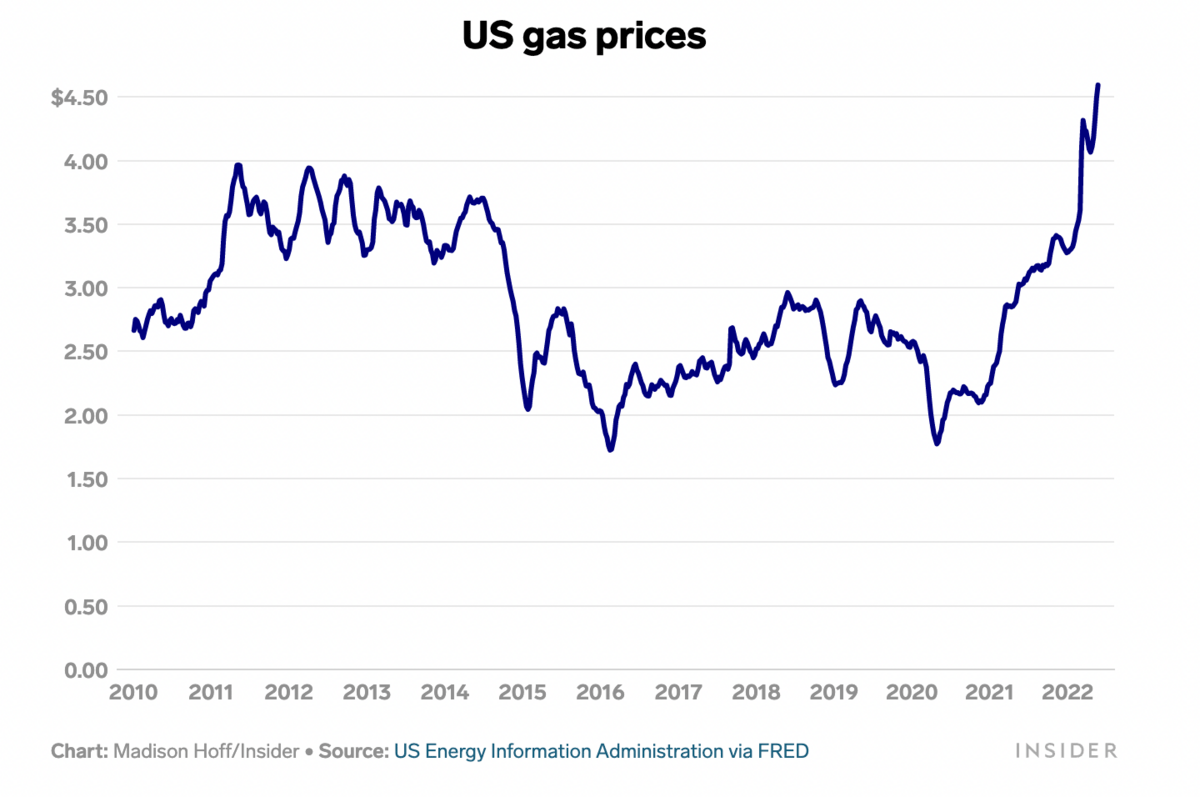Energy Austerity Comes to Spain
Spain is doing its part to reduce Europe's reliance on Russian energy by decreeing limits on air conditioning and heat use. Spain itself is not reliant on Russian fossil fuels, which is curious. But the Spanish government sees energy austerity as part of an energy efficiency agenda that will shrink consumption and lower bills.
Oilprice.com reports, "Spain is now limiting the use of air conditioning in public buildings. During the summer—when temperatures often rise to over 40 degrees Celsius (104 F)—air conditioning in public buildings should be set at no lower than 27 degrees Celsius (80.6 F), according to the government’s newly-passed decree on energy efficiency. In the winter, offices and buildings where public workers work will not be heated above 19 degrees Celsius (66 F)."
Spain's initiative dovetails with the EU and the International Energy Agency's April measures to "save EU households money, reduce EU reliance on Russian fossil fuels, support Ukraine, and help the fight against climate change."
Examples of other measures include driving slowly on the highway, working from home, using public transport, and taking the train instead of a short flight.
It remains to be seen if Spaniards will appreciate their government doing their savings for them, especially if summer proves especially hot.
California Solar, Storage Clobbered by Tariff Probe and Supply Chain Problems
California's solar and storage ambitions have met dire straits.
The Golden State could see "roughly 7,500 MW of delayed or potentially canceled solar projects as well as the storage capacity attached to them," reports Utility Dive. This is due, in part, to Auxin Solar's now infamous petition to the US Department of Commerce to investigate anti-dumping circumvention in regards to solar cells from several Southeast Asian countries.
Battery storage projects are also getting hammered by high lithium prices.
Battery storage is a competitive market with tight margins.
“And what this highlights is that the changes in the underlying and unhedgeable lithium carbonate costs will completely flip a project from lightly profitable to deeply unprofitable,” Alex Morris, president of the California Energy Storage Alliance, explained. “So when you see that and we see these price spikes in lithium carbonate – like the 300% increase since last fall – you very quickly know that the projects will be underwater.”
China's current lockdown is only exacerbating these problems--China produces most of the polysilicon that goes into solar panels and is also one of the globe's largest producers of lithium carbonate.
In Indiana, a utility forestalled coal plant retirements due to solar's current woes. This trend is likely to become a national phenomenon over the course of the year, cutting the new capacity many ISO's hoped to add to their territories in 2022.
Germany Plans for Coal Pivot
Germany's bringing coal back by emergency decree.
If Russia threatens to cut Germany off from its gas, Germany plans to activate coal plants without approval for up to six months.
"According to an internal list," reports Time, "26 plants could be used in total. Fifteen of these are coal plants, 6 oil and 5 lignite, which will be put on a security alert. In five cases, German regulator Bundesetzagentur still has to determine the systemic relevance. Once this is granted, the plants will also become part of the reserve until March 31, 2024."
German utilities have already pledged support and have announced their willingness to make their coal plants available. Uniper has 3 gigawatts of coal power to offer. "RWE AG said it was reviewing which power plants could be turned back on," reports Time. "Germany currently has 4.3 gigawatts of coal plants and 1.6 gigawatts of oil facilities on reserve."
Germany still plans on shuttering its last three nuclear reactors by the end of the year and plans to phase coal out by 2030.
Like what you're reading? Click the button below to get Grid Brief right in your inbox!
Conversation Starters
China's economic slowdown is dampening its coal use. Premier said that China's economy is performing more poorly than in 2020.
New York's utilities are fretting over potentially unlimited financial obligations for customers who experience blackouts--especially if they have no hope of cost recovery.
Gas prices are so high that America's seeing demand destruction during peak driving season.

Word of the Day
kill-weight fluid
A mud with density high enough to produce a hydrostatic pressure at the point of influx in a wellbore that is sufficient to shut off flow into the well. Kill-weight mud, when needed, must be available quickly to avoid loss of control of the well or a blowout. Thus, it is usually made by weighting up some of the mud in the system or in storage by adding barite or hematite. Unless diluted in advance, the mud may become too thick and perhaps un-pumpable due to high solids loading. A weight-up pilot test can identify if and how much dilution will be needed in advance of adding weighting material to the mud in the pits. (source)
Crom's Blessing

